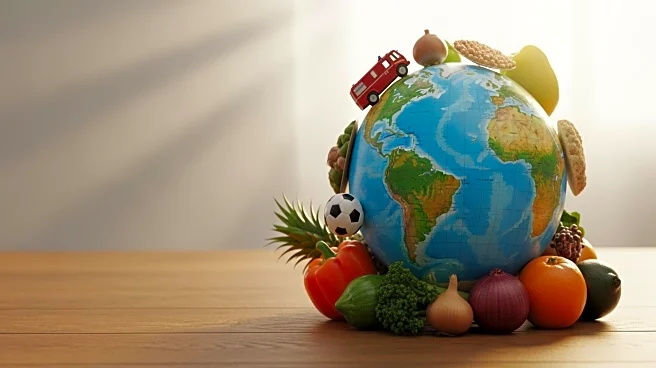What's Happening?
On October 16, 2025, FAO Director-General Dr. QU Dongyu met with H.E. HAN Jun, Minister for Agriculture and Rural Affairs of the People's Republic of China, during the 2025 World Food Forum and FAO's 80th Anniversary celebrations in Rome. The meeting
underscored China's significant role in global food security, poverty reduction, and agricultural development. Dr. Qu expressed appreciation for China's partnership and leadership, noting its successful agricultural transformation as a model for the Global South. Minister Han congratulated FAO on its anniversary and praised its efficient and modern approach under Dr. Qu's leadership. Both parties committed to enhancing collaboration in advancing global food security and rural development.
Why It's Important?
The meeting between FAO and China's Agriculture Minister highlights the critical role of international cooperation in addressing global food security challenges. China's experience in agricultural transformation and poverty reduction offers valuable insights for other developing regions. Strengthened collaboration between FAO and China could lead to more effective strategies in combating food insecurity, especially amid geopolitical uncertainties. This partnership may influence global agricultural policies and initiatives, potentially benefiting millions in vulnerable communities worldwide.
What's Next?
The reaffirmed commitment to collaboration suggests potential joint initiatives and projects aimed at enhancing food security and rural development. Future discussions may focus on specific strategies and programs to leverage China's agricultural expertise for broader global impact. Stakeholders, including governments and international organizations, may closely monitor these developments to align their efforts with emerging global food security strategies.
Beyond the Headlines
The collaboration between FAO and China could have long-term implications for global agricultural policies, potentially setting new standards for sustainable practices. Ethical considerations may arise regarding the balance between technological advancement and traditional farming methods. Cultural exchanges and knowledge sharing could foster innovation and resilience in agricultural sectors worldwide.


















